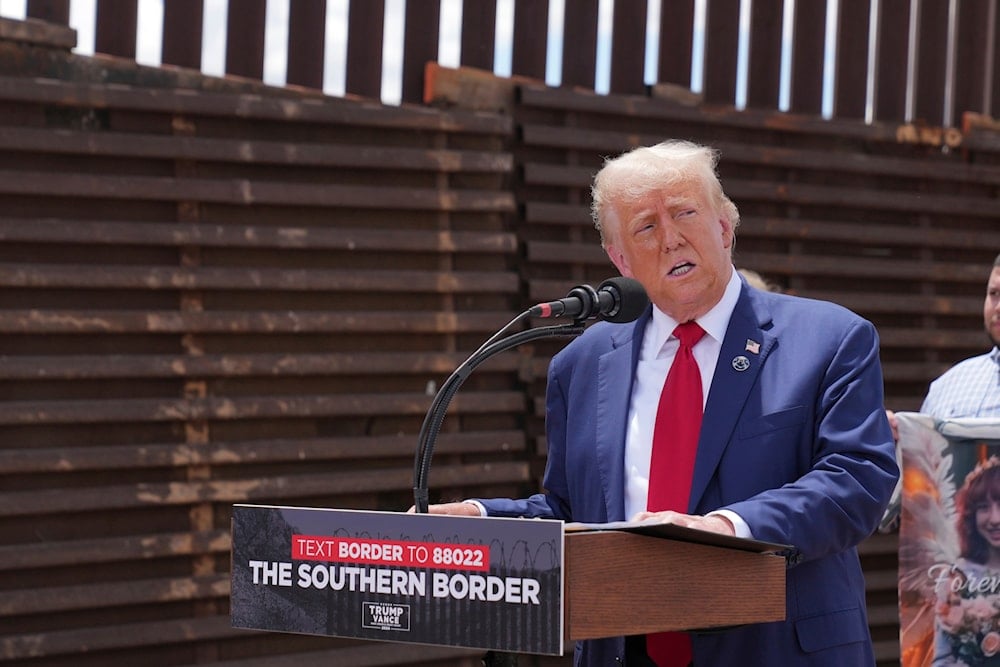Trump facing new indictment in election subversion case
Former US President Donald Trump is facing an election subversion case after the Supreme Court said he could not be tried for official actions as president.
-

Former President Donald Trump speaks during a campaign event in front of the US-Mexico border, Thursday, August 22, 2024, in Sierra Vista, Arizona. (AP)
In a significant development, US prosecutors have secured a new indictment in the ongoing 2020 election subversion case against former President Donald Trump. This move comes shortly after a US Supreme Court ruling that granted former presidents broad immunity from criminal prosecution.
The new indictment notably omits previous allegations that Trump attempted to pressure the US Justice Department to overturn his electoral defeat.
This adjustment appears to be a strategic effort by prosecutors to maintain the viability of the case after the Supreme Court's ruling, which effectively shielded Trump from prosecution for actions taken during his presidency.
The case, which has been closely watched, centers on Trump's alleged attempts to undermine the 2020 election results. The original indictment included claims that Trump had exerted undue influence on the Justice Department to challenge the election outcome. However, with the Supreme Court's decision affirming presidential immunity in such matters, prosecutors have been compelled to revise their approach.
Trump claimed that he had received a letter from prosecutors indicating that he is likely to be criminally indicted in connection with the violence at the US Capitol on January 6.
On Trump's Truth Social platform, he wrote that "Deranged Jack Smith, the prosecutor with Joe Biden's DOJ, sent a letter... stating that I am a TARGET of the January 6 Grand Jury investigation."
The president, the frontrunner for the 2024 Republican presidential nomination, claimed that he received the letter and had "a very short four days" to report to a grand jury, "which almost always means an Arrest and Indictment."
"This witch hunt is all about election interference and a complete and total political weaponization of law enforcement," Trump said. "It is a very sad and dark period for our Nation!"
Trump can claim immunity
A ruling by the US Supreme Court in July said former President Donald Trump could claim immunity from prosecution on election subversion allegations relating to official conduct as president, but he may still face prosecution for unofficial actions.
Trump, the leading contender in the Republican presidential primary is accused of conspiracy to impede an official proceeding, obstructing and attempting to obstruct an official proceeding, and conspiring against rights in a case that constitutes one of the four criminal indictments lodged against him.
He pleaded not guilty in all instances and asserted that he possesses absolute immunity from criminal prosecution concerning actions connected to his presidential duties.
The court cited in its ruling that constitutional separation of powers means "the nature of Presidential power entitles a former president to absolute immunity from criminal prosecution for actions within his conclusive and preclusive constitutional authority. And he is entitled to at least presumptive immunity from prosecution for all his official acts. There is no immunity for unofficial acts."
Lower courts refused Trump's petition to dismiss the election subversion accusation against him, citing presidential immunity, and declined to rule on whether the alleged activity involved official acts.
Certain charges in the Trump case are easily characterized, while others raise "more difficult questions," according to the judgment.

 3 Min Read
3 Min Read








